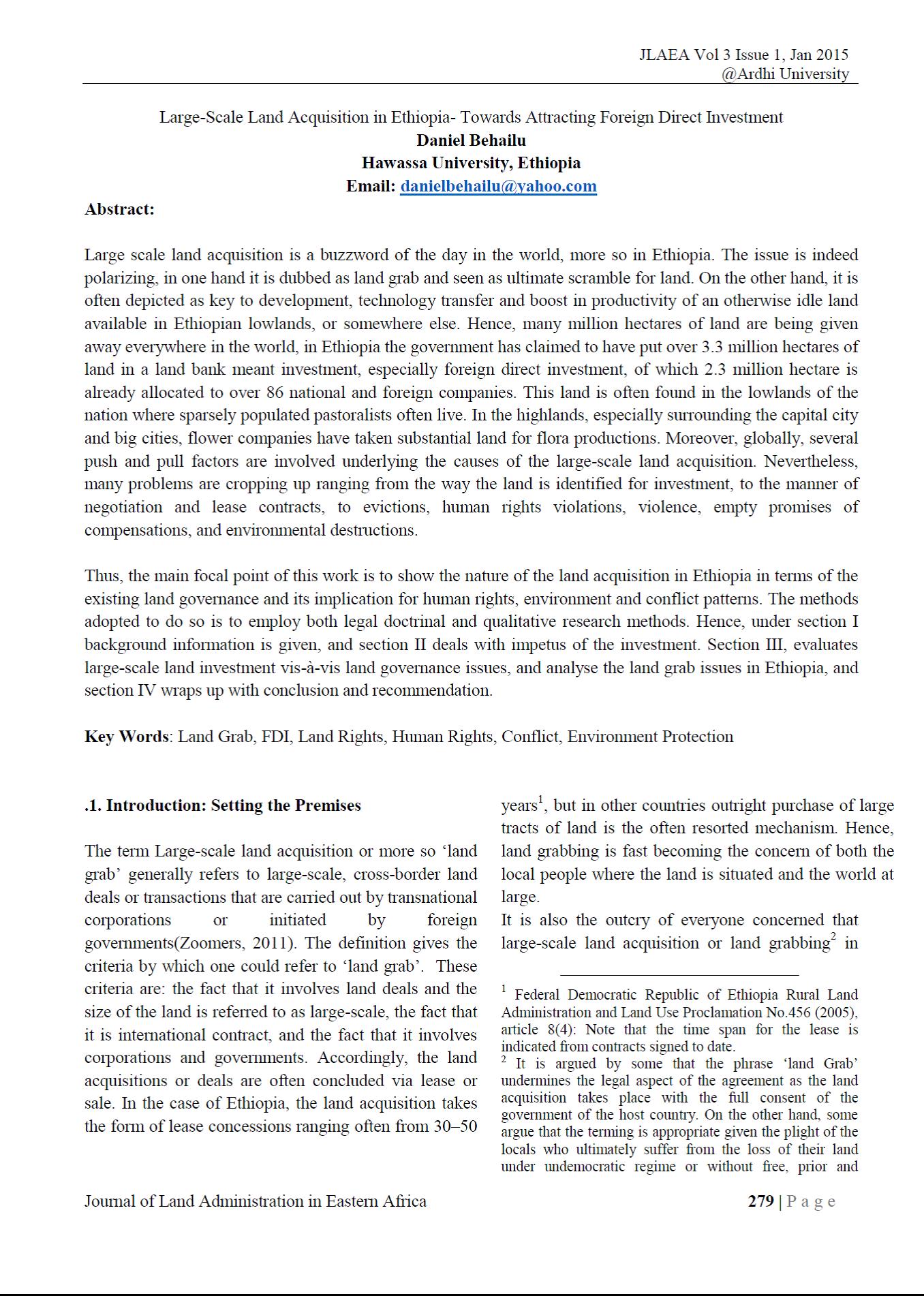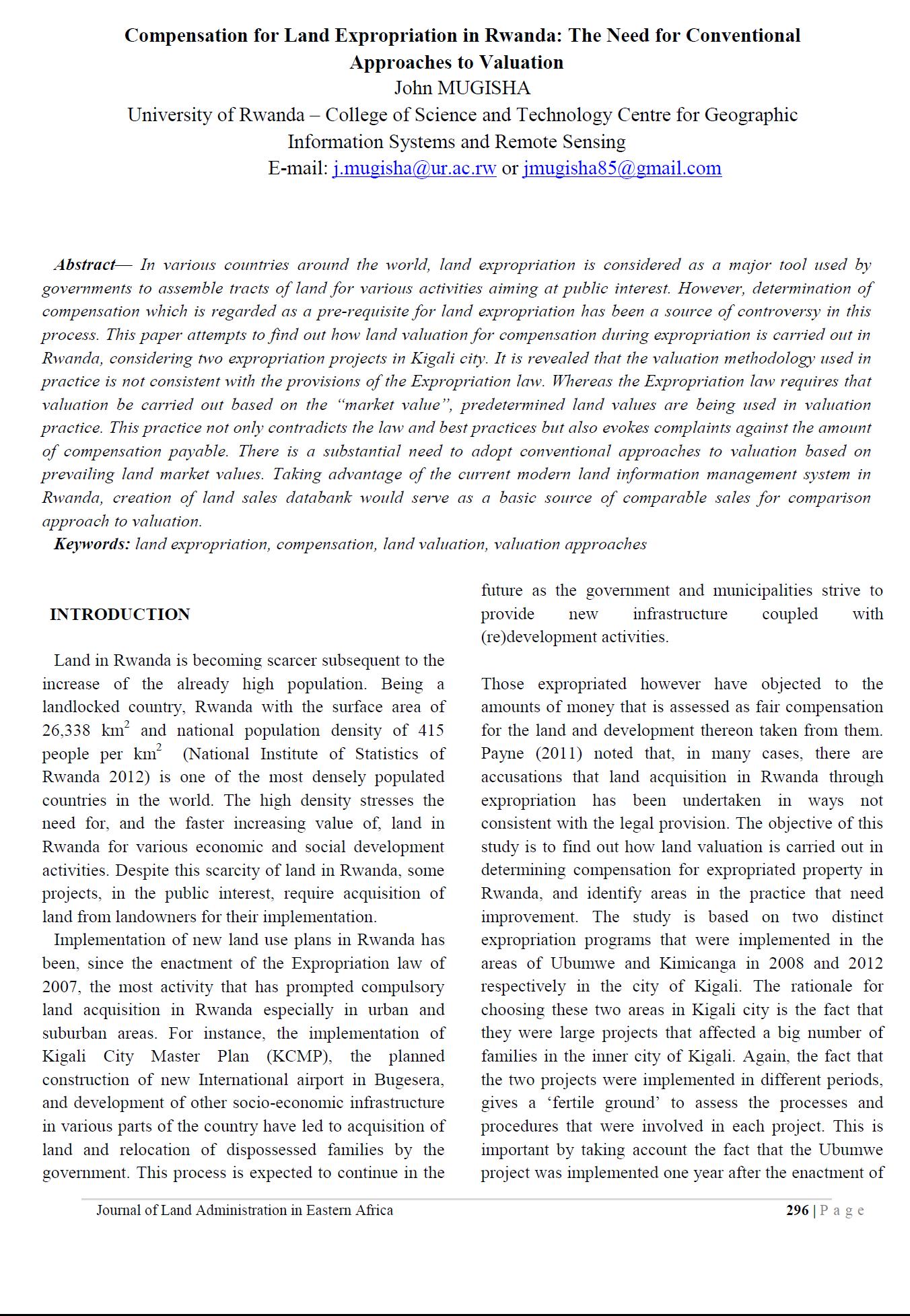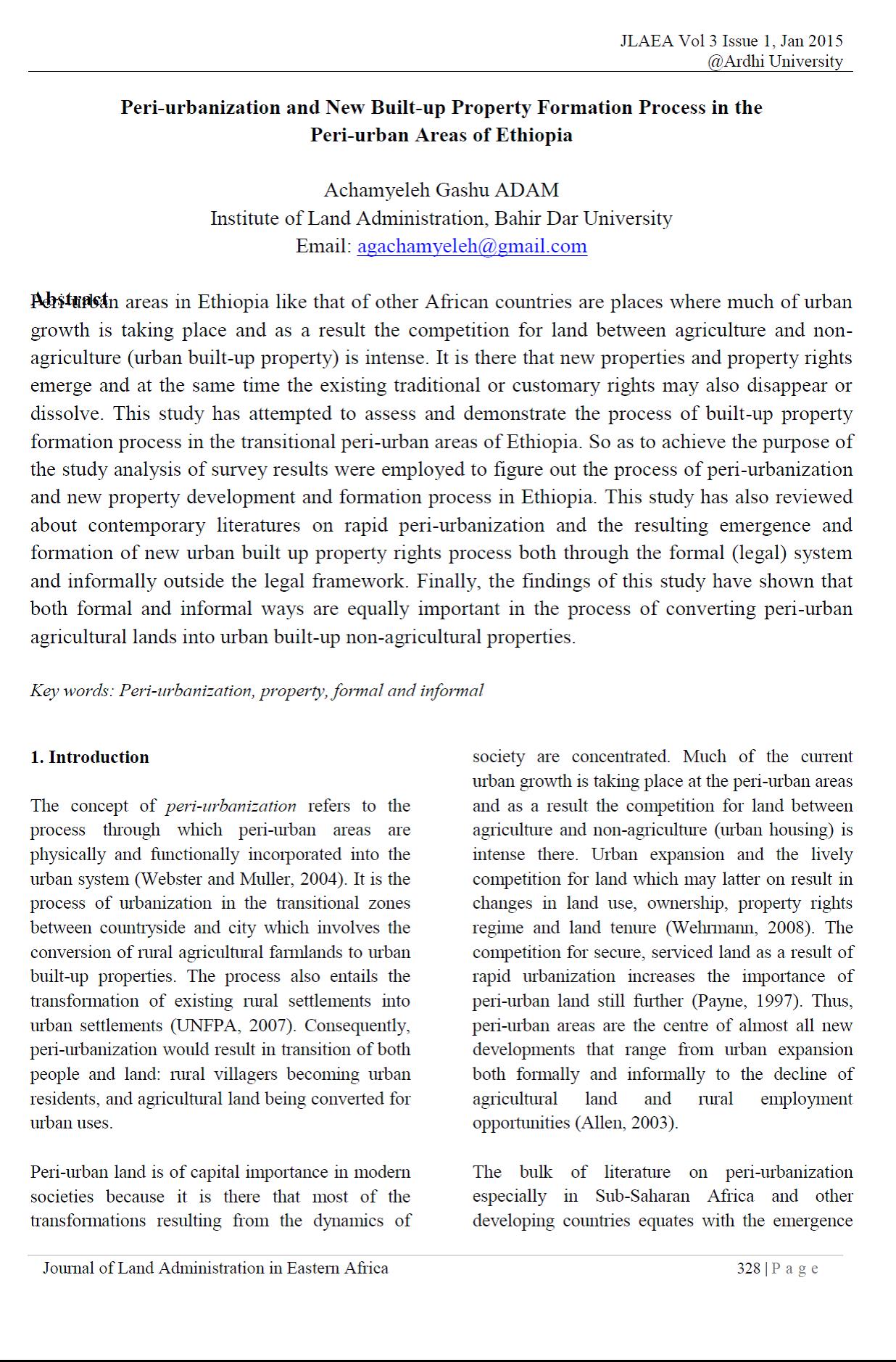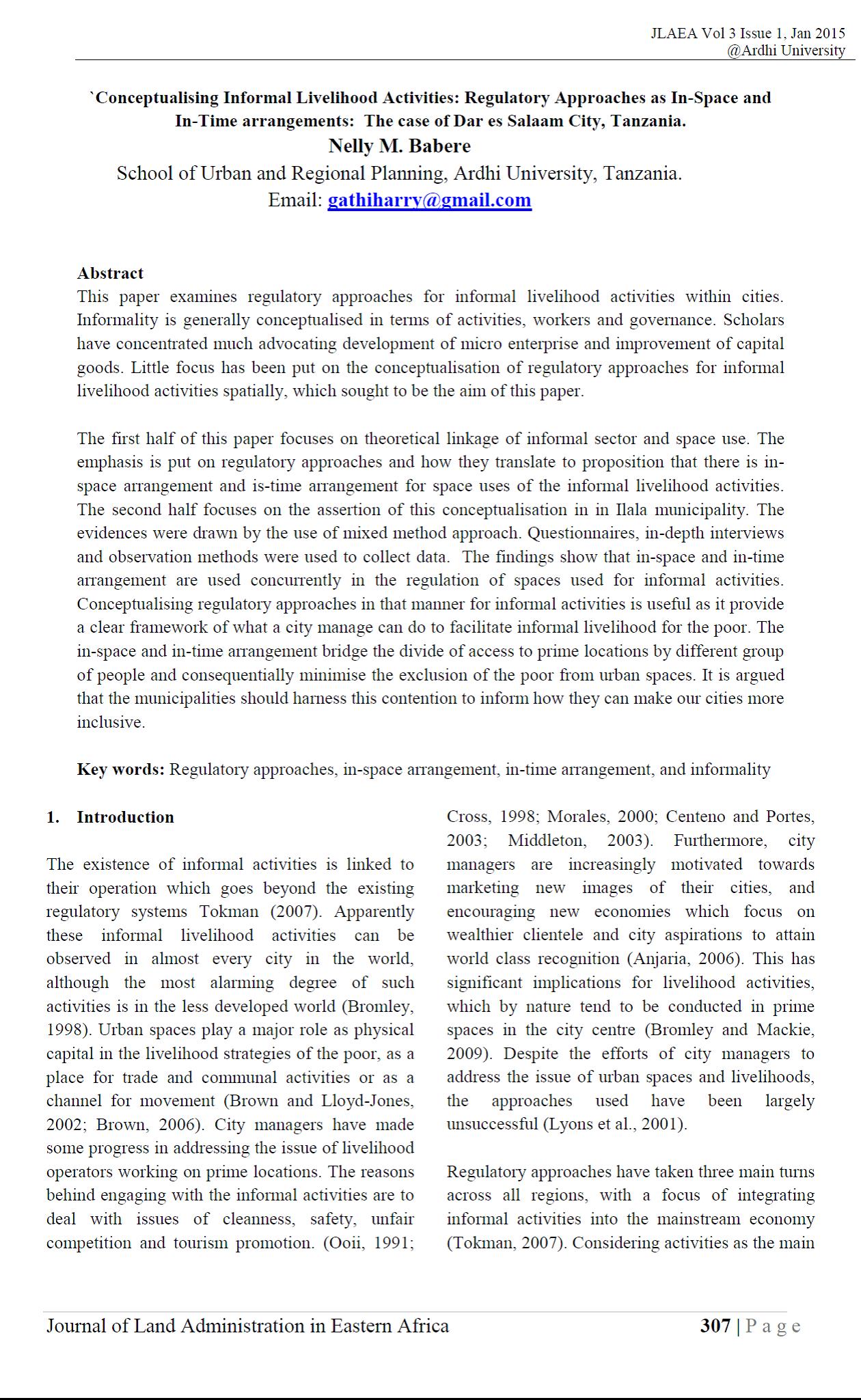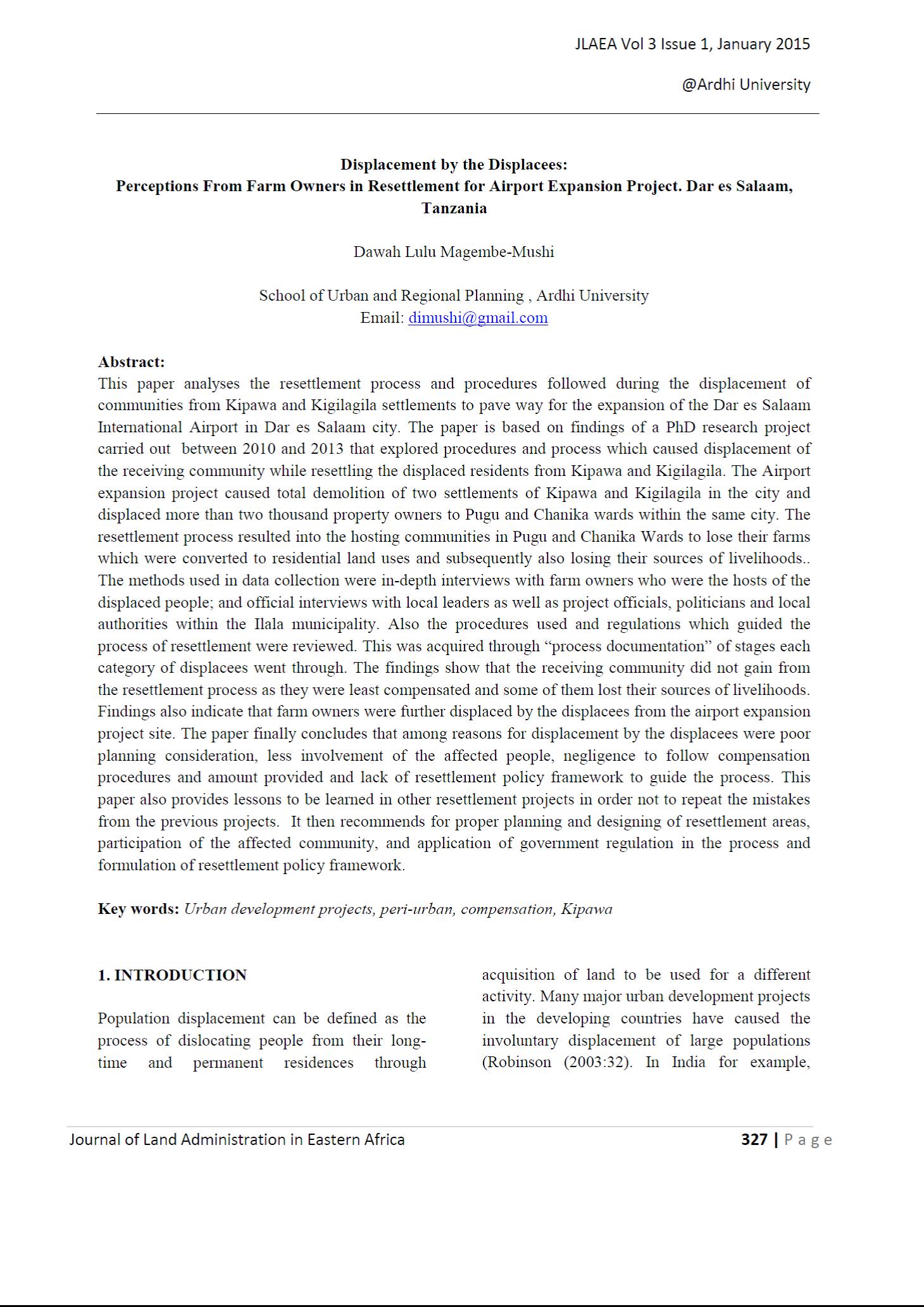Focal point
Location
The Journal of Land Administration in Eastern Africa (JLAEA) is publication of the Land Administration Unit that was set up at ARU in November 2009. JLAEA mirrors the aspirations of the Land Administration Unit at Ardhi University (ARU) whose mission is to ensure quality education and training, research, scientific publications, information dissemination, documentation and public services through integrated cross disciplinary team work in land administration. In November 2011, Ardhi University agreed to a suggestion by the newly established Eastern African Land Administration Network (EALAN) to make the Journal, a property of the network. The EALAN comprises of universities conducting education and training in land administration in Tanzania, Kenya, Uganda, Ethiopia and Rwanda.
Purpose of the Journal
The evolving need for a multi-disciplinary approach in land administration has been well captured by the United Nations institutions drawing experiences from different countries across the globe. In East Africa, land administration is increasingly becoming a crosscutting discipline and no longer limited to the mundane land allocation and use control enforcement processes. It is more diverse and anchored in information communication technology and democratic institutional systems within the land sector. For training institutions such as Ardhi University (ARU), the challenge has been to train the new brand of land administrator who will have to work with the single-discipline trained land sector specialists.
The Journal of Land Administration in Eastern Africa (JLAEA) is publication of the Land Administration Unit that was set up at ARU in November 2009. JLAEA mirrors the aspirations of the Land Administration Unit at ARU whose mission is to ensure quality education and training, research, scientific publications, information dissemination, documentation and public services through integrated cross disciplinary team work in land administration. In November 2011, Ardhi University agreed to a suggestion by the newly established Eastern African Land Administration Network (EALAN) to make the Journal, a property of the network. The EALAN comprises of universities conducting education and training in land administration in Tanzania, Kenya, Uganda, Ethiopia and Rwanda
Members:
Resources
Displaying 11 - 15 of 34Large-Scale Land Acquisition in Ethiopia- Towards Attracting Foreign Direct Investment
Large scale land acquisition is a buzzword of the day in the world, more so in Ethiopia. The issue is indeed polarizing, in one hand it is dubbed as land grab and seen as ultimate scramble for land. On the other hand, it is often depicted as key to development, technology transfer and boost in productivity of an otherwise idle land available in Ethiopian lowlands, or somewhere else.
Compensation for Land Expropriation in Rwanda: The Need for Conventional Approaches to Valuation
In various countries around the world, land expropriation is considered as a major tool used by governments to assemble tracts of land for various activities aiming at public interest. However, determination of compensation which is regarded as a pre-requisite for land expropriation has been a source of controversy in this process. This paper attempts to find out how land valuation for compensation during expropriation is carried out in Rwanda, considering two expropriation projects in Kigali city.
Peri-urbanization and New Built-up Property Formation Process in the Peri-urban Areas of Ethiopia
Peri-urban areas in Ethiopia like that of other African countries are places where much of urban growth is taking place and as a result the competition for land between agriculture and nonagriculture (urban built-up property) is intense. It is there that new properties and property rights emerge and at the same time the existing traditional or customary rights may also disappear or dissolve. This study has attempted to assess and demonstrate the process of built-up property formation process in the transitional peri-urban areas of Ethiopia.
Conceptualising Informal Livelihood Activities: Regulatory Approaches as In-Space and In-Time arrangements
This paper examines regulatory approaches for informal livelihood activities within cities. Informality is generally conceptualised in terms of activities, workers and governance. Scholars have concentrated much advocating development of micro enterprise and improvement of capital goods. Little focus has been put on the conceptualisation of regulatory approaches for informal livelihood activities spatially, which sought to be the aim of this paper.
Displacement by the Displacees
This paper analyses the resettlement process and procedures followed during the displacement of communities from Kipawa and Kigilagila settlements to pave way for the expansion of the Dar es Salaam International Airport in Dar es Salaam city. The paper is based on findings of a PhD research project carried out between 2010 and 2013 that explored procedures and process which caused displacement of the receiving community while resettling the displaced residents from Kipawa and Kigilagila.


